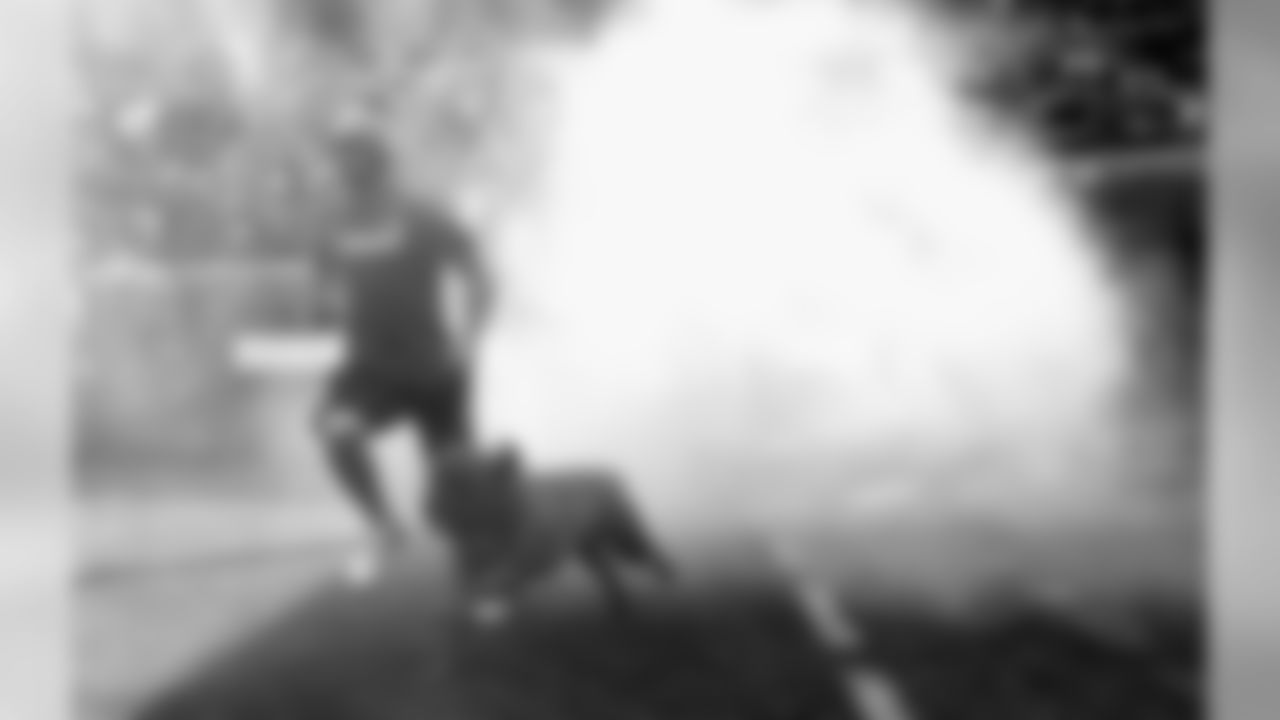We're picking up the pieces after Cleveland's tough, 26-23 overtime loss to the Broncos.
Here were the five things that stood out in a game that got wild starting at the 10-minute mark of the fourth quarter.
1) Browns lament 2 offensive series that could have changed Sunday's game
The theme in the Browns locker room after Sunday's game was missed opportunities.
The two that bugged Cleveland's offense the most came near the end of regulation and on the first and only offensive series in overtime.
The first ended with points, the three that tied up the game and ultimately sent it to overtime. But that it wasn't six is what gnawed at the players on offense.
Trailing by a field goal, Cleveland picked up a first down to settle at Denver's 11-yard line with 1:53 to play. The Browns weren't looking to settle for a field goal but ultimately had to because the next three plays didn't go as planned.
Josh McCown's screen pass to fullback Malcolm Johnson was snuffed out for no gain. Isaiah Crowell gained 3 yards on the ground to set up third-and-7. McCown's pass to Brian Hartline in the end zone fell short and Cleveland had to settle for the tie.
"Malcolm was one we thought they did a good job rallying to it," Browns coach Mike Pettine said. "They defended that well. He was open early, and they defended well. We thought we would get them thinking pass and could hit a run on the next down, and then the third-down play, they covered it and he scrambled out and ended up having to throw it away."
Cleveland's offense was just a few yards outside of Travis Coons' range when Barkevious Mingo intercepted Peyton Manning's pass on Denver's first series of overtime. Three plays later, the Browns were 18 yards behind where they started after a snuffed-out run play and back-to-back sacks.
Running back Robert Turbin bobbled the ball on the first-down pitch and was delayed in his push upfield because of it. The two passing plays didn't appear to have much of a chance from the start.
"Their coverage was great on those two. That was the main thing," McCown said. "The first (sack) they had man coverage on that and I stepped up and they got me down pretty quick. The second one, same thing, they had coverage. I moved up to try to get a throw off, but it wasn't there."

Cleveland Browns quarterback Josh McCown warms up

Cleveland Browns wide receiver Marlon Moore stretches

Cleveland Browns defensive tackle Danny Shelton signs autographs

Cleveland Browns quarterback Josh McCown warms up

Dylan Hershberger, 8, watches the teams warm up

Cleveland Browns quarterback Josh McCown warms up before an NFL football game against the Denver Broncos

Cleveland Browns head coach Mike Pettine, right, talks with owner Jimmy Haslam

Cleveland Browns defensive tackle Danny Shelton

Cleveland Browns mascot "Swagger" runs out on the field

Wanda Kirk holds the flag for Breast Cancer Awareness Month

Cleveland Browns offensive lineman Joe Thomas

Cleveland Browns center Alex Mack

Cleveland Browns linebacker Paul Kruger

Cleveland Browns quarterback Josh McCown looks for a receiver

Cleveland Browns linebacker Karlos Dansby reacts after coming up with an interception

Cleveland Browns offense

Cleveland Browns kicker Travis Coons during kickoff

Cleveland Browns defensive back Justin Gilbert celebrates after making a special teams tackle

Cleveland Browns quarterback Josh McCown (13) passes during the first half of an NFL football game

Special teams coordinator Chris Tabor addresses the special teams unit in the first half


Cleveland Browns running back Robert Turbin (27) stiff arms Denver Broncos cornerback Chris Harris Jr. (25)

Cleveland Browns running back Robert Turbin

Cleveland Browns defensive back K'Waun Williams

Cleveland Browns tight end Gary Barnidge catches an 11-yard pass

Cleveland Browns tight end Gary Barnidge catches an 11-yard pass

Cleveland Browns quarterback Josh McCown celebrates an 11-yard touchdown reception

Cleveland Browns tight end Gary Barnidge celebrates his 11 yard touchdown reception

Cleveland Browns head coach Mike Pettine

Cleveland Browns fans cheer during the second half


Cleveland Browns quarterback Josh McCown stands under center Alex Mack

Cleveland Browns runningback Isaiah Crowell breaks a run the second half


Cleveland Browns head coach Mike Pettine gives a signal

Cleveland Browns offensive coordinator John DeFilippo

Denver Broncos wide receiver Emmanuel Sanders (10) can't hold onto the ball under pressure from Cleveland Browns defensive back Tramon Williams (22)

Cleveland Browns linebacker Karlos Dansby runs the ball after an interception for a 35-yard touchdown

Cleveland Browns linebacker Karlos Dansby runs the ball after an interception for a 35-yard touchdown
2) Injury updates
Tight end Rob Housler left Sunday's game early with a hamstring injury while linebacker Tank Carder and running back Duke Johnson Jr. are dealing with shoulder injuries, Pettine said.
Johnson's injury occurred late in the game. He finished with a team-high 38 rushing yards and three receptions for 18 yards. Carder had one tackle.
Wide receiver Marlon Moore suffered a hamstring injury during practice this week and was inactive for Sunday's game. DB Joe Haden (concussion), FS Tashaun Gipson (ankle), LB Craig Robertson (ankle) were also inactive because of injuries.
3) Pettine explains decision to go for two
Pettine said he was looking at the number of possessions remaining in the game and how the game had transpired to that point when he decided to attempt a two-point conversion following Karlos Dansby's interception return for a touchdown.
Dansby's 35-yard return gave the Browns a 20-16 lead with 8:07 to play. The Broncos offense, to that point, hadn't scored a touchdown since the third quarter of their Week 4 win against Minnesota.
Despite receiving two attempts because of a Broncos penalty, the Browns did not convert the two-point conversion. Denver scored a touchdown on the ensuing possession's first play when Manning connected with Emmanuel Sanders on a 75-yard touchdown pass.
"If you only go up five, two field goals beats you," Pettine said. "Also, if you go up six and then you kick a field goal, you are now up nine, which makes it a two-score game on their part. We discussed it. It was at that fringe time on our notes, whether to do it. Obviously, knowing the end of the movie, now you would have liked to kick it. We felt good about the decision to go for two, but unfortunately, we didn't convert."
4) Playing the wind
The Browns and Broncos were indirectly affected by the swirling winds that engulfed FirstEnergy Stadium on Sunday. For both, it was the north end zone, in particular, that caused some issues and altered decisions.
Faced with a fourth-and-5 on their first offensive possession of the game, the Browns opted to go for it rather than have Coons, who is perfect on the season, attempt a 49-yard field goal. McCown's pass went incomplete and Denver took over on downs.
"We were not at the line where (special teams coordinator Chris Tabor) felt comfortable just heading that direction, based on warmups," Pettine said. "It was one where I didn't want to put him in at that point. We were just in that in between. We thought we had a good fourth-down play, but we didn't convert it."
Late in the second quarter, Denver's Brandon McManus missed his first field goal of the season on a kick at that end of the field. His 51-yard attempt was blown wide left. He came into the game with four makes from 50 yards or more.
5) The wildest play on a wild day that didn't count for anything
So many variables were at play on what was originally called a 38-yard pass from Manning to Sanders with 19 seconds to play and the game tied.
Sanders caught the ball and was brought to the ground by Tramon Williams at Cleveland's 19-yard line. The Broncos were out of timeouts, but Sanders got up and trotted toward the end zone with the ball in his hands as seconds ticked off the clock.
The play was ultimately reviewed and it was determined Sanders never caught the ball in the first place. Denver was forced to punt and the game went to overtime.














